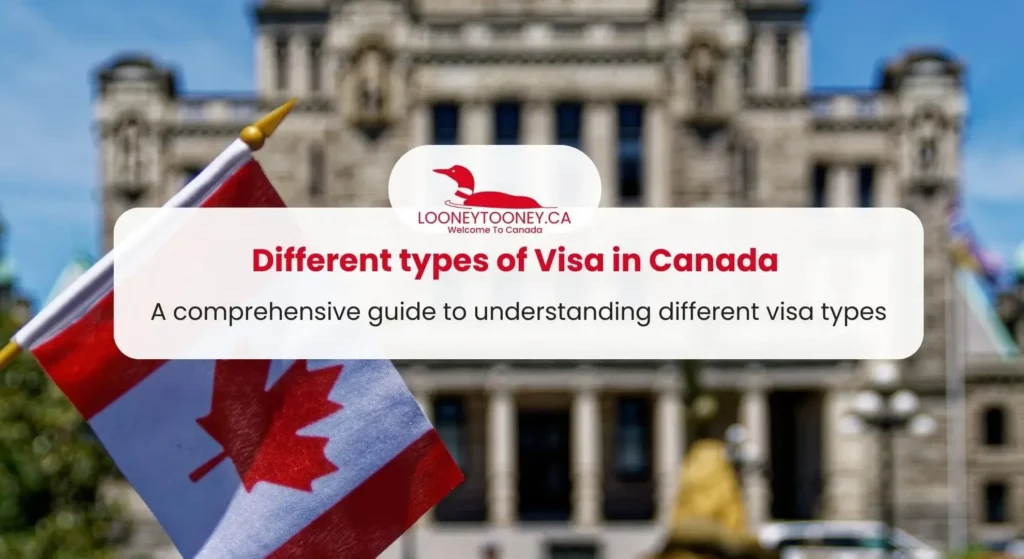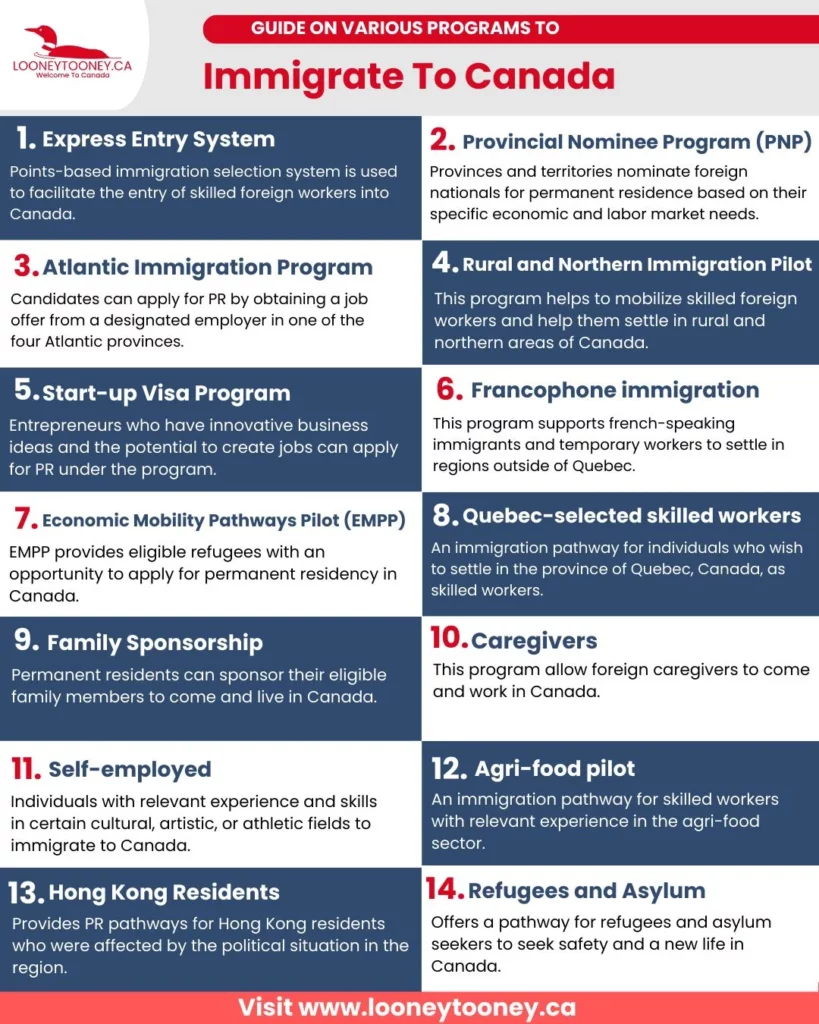Studying in Canada offers not only an excellent education but also an opportunity to gain valuable work experience through part-time jobs in Canada. Part-time employment can provide financial support, improve soft skills, and help students integrate into Canadian society. This article will guide you through the benefits of part-time jobs for international students, eligibility criteria, rules and regulations, available job types, average pay scales, and tips for finding the perfect part-time gig.
Benefits of Part-Time Jobs in Canada
Part-time jobs in Canada offer a range of benefits for both domestic and international students. These benefits can have a positive impact on your personal, academic, and professional growth. Here are some of the key benefits of part-time jobs in Canada:
- Financial Support: Part-time jobs offer a practical solution to financial challenges that many students face. The extra income earned from a part-time job can help cover living expenses, rent, groceries, transportation costs, and even contribute towards tuition fees. This financial support can alleviate stress and provide you with more financial independence while pursuing your studies.
- Skill Development: Part-time jobs provide a valuable platform for skill development beyond the classroom. You’ll hone skills like time management by balancing work shifts with study commitments. Communication skills improve as you interact with coworkers, supervisors, and customers. Problem-solving skills get a workout as you navigate challenges that arise in a work environment. These skills are transferable and can be applied to your academic work and future career.
- Work Experience: Holding a part-time job while studying gives you a chance to gain practical work experience. This experience can be a significant asset on your resume when you start looking for full-time employment after graduation. Potential employers appreciate candidates who can demonstrate that they’ve successfully balanced academic pursuits with real-world work responsibilities.
- Networking: Part-time jobs introduce you to a diverse array of people. You’ll interact with colleagues, supervisors, and customers from various backgrounds. Building relationships in the workplace can lead to valuable connections for future job opportunities, internships, and even potential mentors who can guide you in your career journey.
- Cultural Integration: Engaging in part-time work in Canada exposes you to Canadian workplace culture, norms, and practices. You’ll learn about the expectations and etiquette specific to the Canadian job market. This integration into Canadian work life can help you feel more comfortable and confident as you navigate professional settings in the country.
Part-time jobs offer a well-rounded educational experience that extends beyond classroom learning. They provide practical insights into the real world of work, offer financial relief, and equip you with skills that are essential for personal and professional success.
Eligibility Criteria for Part-Time Jobs in Canada for Students
As an international student, pursuing part-time jobs in Canada can be a valuable opportunity to support your studies, gain work experience, and immerse yourself in Canadian culture. However, there are certain eligibility criteria that you must meet to legally work part-time while studying. Here’s a comprehensive overview of the eligibility criteria for part-time jobs in Canada:
- Valid Study Permit: You must hold a valid study permit to study at a Designated Learning Institution (DLI) in Canada. Without a valid study permit, you won’t be eligible to work part-time.
- Study Program Duration: Part-time work eligibility begins once you start your study program and continues as long as you remain a full-time student. If you complete your program early or drop below full-time enrollment, your work eligibility may be affected.
- Social Insurance Number (SIN): Before you start working, you need to apply for a Social Insurance Number (SIN) from Service Canada. Your SIN is essential for taxation and employment purposes.
- Work Limit: While classes are in session, you are generally allowed to work up to 20 hours per week off-campus. During scheduled breaks (summer, winter holidays), you can work full-time.
- Enrollment: You must be enrolled as a full-time post-secondary student at a:
- I. Public or private secondary college, university, trade or technical school, or CEGEP in Quebec
- II. Canadian private school that is eligible to award degrees under provisional law in a study program authorized by the province.
- III. Public or private secondary or post-secondary institution in Quebec that offers qualifying programs of 900 hours or longer.
Rules and Regulations for Student Employment
Rules and regulations for student employment can vary from country to country, and even within different regions or institutions. Here is an overview of rules and regulations for part-time jobs in Canada, particularly for international students.
- Study Permit Conditions: International students in Canada on a study permit are generally allowed to work up to 20 hours per week during regular academic sessions (while classes are in session) and full-time during scheduled breaks (e.g., summer and winter holidays).
- Social Insurance Number (SIN): To work legally in Canada, you need a Social Insurance Number (SIN). You can apply for a SIN either in person at a Service Canada office or online. You will need your study permit and a job offer to apply.
- On-Campus Employment: International students can work on-campus without a work permit. On-campus jobs can include positions within the university, such as library assistants, administrative roles, or research assistants. Some universities also have agreements with off-campus organizations located on campus grounds that allow students to work there without a separate work permit.
- Off-Campus Employment: If you want to work off-campus, you generally need to apply for a work permit. This work permit is part of your study permit and doesn’t require a separate application. The work permit will outline the conditions of your off-campus employment.
- Co-op and Internships: Some study programs, especially those that involve co-op or internship components, may have specific rules regarding work permits. These programs might require students to apply for a co-op work permit in addition to their study permit.
- Taxation: If you work in Canada, you’ll need to pay taxes. Make sure you understand your tax obligations and consider filing a tax return, even if you earn a low income. You might be eligible for tax credits and benefits.
Types of Part-Time Jobs Available for International Students
Part-time employment offers international students in Canada a chance to earn income, develop skills, and integrate into the local community. These jobs can be broadly categorized into on-campus and off-campus opportunities.
On-Campus Jobs:
You can do some part-time jobs while being on-campus. Some of them are:
- Research Assistant: Assist professors or researchers in their projects, helping with tasks such as data collection, analysis, and literature review.
- Teaching Assistant: Support professors by helping with grading, facilitating discussions, and providing assistance to students in courses.
- Library Assistant: Work in university libraries, helping students find resources, shelving books, and assisting with administrative tasks.
- Student Ambassador: Represent your university at events, provide campus tours, and assist with orientation programs for new students.
- Campus Tour Guide: Lead tours around the campus, sharing information about facilities, resources, and student life.
- Administrative Assistant: Assist various university departments with tasks such as data entry, answering phones, and organizing events.
- Peer Tutor: Provide academic support to fellow students by tutoring in subjects you excel in.
Off-Campus Jobs:
You can also explore Canada while earning some extra cash on off-campus jobs. They are:
- Retail Sales: Work in stores, assisting customers, restocking shelves, and processing sales transactions.
- Food Service: Jobs in cafes, restaurants, and fast-food establishments as servers, cooks, or cashiers.
- Hospitality: Opportunities in hotels, resorts, and event venues, ranging from front desk roles to event planning.
- Customer Service Representative: Work for customer service centers, addressing inquiries via phone, email, or online chat.
- Freelancing: Pursue online freelance opportunities such as content writing, graphic design, programming, and digital marketing.
- Tutoring: Provide private tutoring to school or college students in subjects you excel in.
- Childcare: Babysitting or daycare roles, taking care of children and ensuring their safety and well-being.
- Delivery Services: Join food delivery platforms or courier services to deliver orders to customers.
- Sales Promoter: Promote products or services at events, trade shows, or in-store promotions.
- Research Assistant (Off-Campus): Assist organizations outside the university with research projects, data analysis, and report preparation.
These part-time job opportunities allow international students to not only earn income but also develop transferable skills that can be beneficial for their future careers. It’s important to choose a job that aligns with your schedule and academic priorities while adhering to the regulations set by your study permit.
Average Pay Scale for Different Part-Time Jobs
The average pay scale for different part-time jobs can vary widely based on factors such as location, industry, job responsibilities, and the skills required. Part-time jobs can range from entry-level positions with lower pay to specialized roles that offer higher compensation.
Average Pay Scale for On-Campus Part-Time Jobs:
On-campus part-time job pay scales can also vary depending on factors like the specific university or college, the job responsibilities, and the location of the institution. Here are some examples of average pay scales for on-campus part-time jobs at universities in Canada:
| On-Campus Job Type | Average Hourly Pay (CAD) |
| Research Assistant | $15 – $18 |
| Teaching Assistant | $15 – $20 |
| Library Assistant | $14 – $17 |
| Student Ambassador | $13 – $16 |
| Campus Tour Guide | $12 – $15 |
| Administrative Assistant | $14 – $17 |
| Peer Tutor | $20 – $25 |
Average Pay Scale for Off-Campus Part-Time Jobs:
The average pay scale for off-campus part-time jobs can vary widely based on the type of job, location, industry, and level of experience required. Here are some examples of average pay scales for off-campus part-time jobs in Canada
| Off-Campus Job Type | Average Hourly Pay (CAD) |
| Retail Sales | $12 – $15 |
| Food Service | $13 – $16 |
| Hospitality | $14 – $18 |
| Customer Service Rep | $14 – $17 |
| Freelancing | Varies |
| Babysitting/Childcare | $12 – $15 |
| Delivery Services | $14 – $17 |
| Sales Promoter | $13 – $16 |
Minimum Wages by Province
Minimum wage rates in Canada can vary by province and territory. Here are the minimum wages by province:
| Province | Minimum Wage (CAD) |
| Alberta | $15 |
| British Columbia | $15.20 |
| Ontario | $14.35 |
| Quebec | $13.50 |
| Manitoba | $12.90 |
Paying Taxes as An International Student in Canada
As an international student in Canada, you might be subject to certain tax obligations, even if you’re not a Canadian citizen or permanent resident. Here’s an overview of what you need to know about paying taxes as an international student in Canada:
1. Determining Tax Residency:
- Your tax liability in Canada depends on your tax residency status. If you are in Canada for 183 days or more in a tax year, you are generally considered a resident for tax purposes.
- If you are a tax resident, you’ll be required to report your worldwide income on your Canadian tax return.
2. Types of Income:
- If you work in Canada, whether on-campus or off-campus, your earnings are subject to Canadian income tax.
- If you receive scholarships, fellowships, or bursaries, some portions may be taxable while others might be exempt. Check with your educational institution for guidance.
3. Tax Credits and Deductions:
- As a tax resident, you may be eligible for various tax credits and deductions, such as the tuition tax credit, education amount, and more. These can help reduce your overall tax liability.
- Non-residents are generally not eligible for most tax credits and deductions.
4. Applying for a Social Insurance Number (SIN):
- To work in Canada, you’ll need a Social Insurance Number (SIN). This is also required for filing taxes. You can apply for a SIN at a Service Canada office.
5. Filing a Tax Return:
- If you have earned income or want to claim tax credits or benefits, you must file a tax return.
- Even if you don’t owe taxes, filing a return is important to receive any applicable tax credits and benefits.
6. Tax Treaty Considerations:
- Canada has tax treaties with many countries to prevent double taxation. These treaties may impact how your income is taxed in Canada and in your home country. Consult your country’s tax authority or a tax professional for guidance.
7. Deadline and Resources:
- The deadline for filing your tax return in Canada is typically April 30th. However, if you or your spouse/common-law partner are self-employed, the deadline is extended to June 15th.
- The Canada Revenue Agency (CRA) provides resources, guides, and free tax preparation software for individuals filing their taxes.
8. Tax Preparation:
- Many international students choose to use tax software or online filing systems to prepare and submit their tax returns. These tools can guide you through the process.
9. Professional Help:
- If your tax situation is complex or you’re unsure about certain aspects of the tax process, consider seeking assistance from a tax professional or accountant.
Remember that filing your taxes correctly ensures that you meet your obligations and potentially benefit from available tax credits and benefits.
How to Find Part-Time Jobs in Canada for International Students?
Finding part-time jobs in Canada for international students can be a rewarding experience that helps you earn extra income, gain valuable work experience, and integrate into Canadian society. Tailor your applications, showcase your strengths, and make the most of networking opportunities to increase your chances of landing a part-time job as an international student in Canada. Here are some ways using which you can find part-time jobs in Canada as a student:
- Explore On-Campus Opportunities: Many Canadian universities and colleges have on-campus job opportunities specifically designed for students. These jobs are often flexible and considerate of your class schedule. Check your institution’s career services department or website for job listings.
- Online Job Portals: Use online job portals and websites to search for part-time jobs. Websites like Indeed, Monster, Workopolis, and LinkedIn often have listings for various types of part-time positions.
- Job Fairs: Attend job fairs organized by your institution or local organizations. Job fairs are a great way to meet employers, learn about job opportunities, and network with professionals in your field.
- Networking: Utilize your personal and professional networks to discover job opportunities. Inform your classmates, professors, and advisors that you’re looking for part-time work. Sometimes, job opportunities are shared through word of mouth.
- Visit Career Services: Your university or college’s career services department can provide valuable assistance in your job search. They may offer workshops on resume writing, interview skills, and job search strategies.
- Local Businesses: Walk around your local area and inquire at nearby businesses about part-time job openings. Restaurants, cafes, retail stores, and local shops often hire students for part-time positions.
Part-time jobs in Canada offer international students an incredible opportunity to enhance their academic journey, gain valuable work experience, and foster personal growth. By understanding eligibility criteria, regulations, and exploring various job avenues, students can make the most of their time in Canada, both academically and professionally. Remember, your part-time job is not only about earning money, but also about building skills and memories that will last a lifetime.
Here are some other articles you might find useful:
Temporary Housing Options for Professionals in Toronto
Comparing the Cost of Living for Students Across Various Canadian Cities
Top Student Chequing Accounts in Canada 2023
FAQs
Q. Can I work on-campus with a study permit?
A. Yes, you can work on-campus without a separate work permit as long as you have a valid study permit.
Q. Can I work full-time during breaks as an international student?
A. Yes, you can work full-time during scheduled breaks, such as summer or winter holidays.
Q. Do I need a job offer to apply for a Social Insurance Number (SIN)?
A. Generally, a job offer is required to apply for a SIN, but some universities may provide a letter of introduction for this purpose.
Q. Can I work as a self-employed individual on a study permit?
A. Yes, you can engage in self-employment or freelancing, but ensure it doesn’t affect your studies.
Q. Do I need to pay taxes on my part-time earnings?
A. Yes, you are required to pay taxes on your earnings. Make sure to file your taxes annually.





